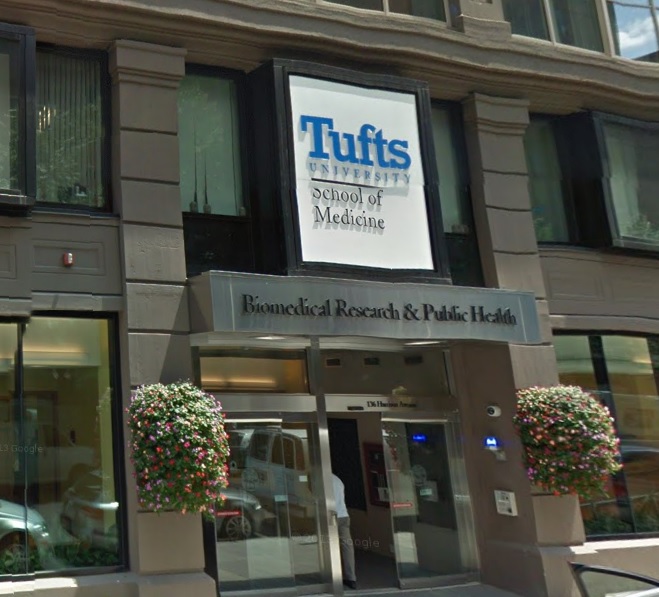Boston, June 3, 2014 — Tufts University has received a permit from the Boston Public Health Commission to operate the Arnold 8 Biosafety Laboratory, a new research laboratory that will focus on finding innovative ways to detect, prevent and treat tuberculosis. The 1,700-square-foot Biosafety Level 3 laboratory is located within Tufts School of Medicine’s existing Biomedical Research and Public Health Building at 136 Harrison Avenue.

Tufts University Biomedical Research and Public Health Building (file photo).
Tuberculosis, the primary focus of the laboratory’s research, is a serious concern in Boston and worldwide. The World Health Organization estimates that the disease infects as many as one in three people globally. Each year, approximately 10 million people develop symptoms that require months of treatment with multipledrugs.
“The completion of the laboratory is a landmark event for Tufts University School of Medicine. This facility will make possible innovative, potentially life-saving research. It will be an important addition not only to Tufts but also to Boston’s health science research capacity,” said Tufts University School of Medicine Dean Harris Berman, M.D. “We are very pleased with Boston Public Health Commission’s decisionfollowing a comprehensive review of our project.”
The laboratory will be home to leading edge scientists such as Bree Aldridge, Ph.D., who is combining microbiology and engineering to uncover the survival strategies of the bacterium that causes tuberculosis in an effort to shorten and simplify treatment.
Tufts has worked closely with the localcommunity throughout the development process, which began in the spring of 2012. “We greatly appreciate the time and thoughtful input provided by our Community Advisory Committee and other members of the community, particularly our neighbors in Chinatown. We’re committed to continuing that relationship,” said John Leong, M.D., Ph.D., chair of the Department of Molecular Biology and Microbiology at TUSM.
The project team included architect Payette and Shawmut Design and Construction.
BSL-3 laboratories operate at major hospitals and academic institutionsthroughout Boston.
Tufts University, located on three Massachusetts campuses in Boston, Medford/Somerville, and Grafton, and in Talloires, France, is recognized among the premier research universities in the United States. Tufts enjoys a global reputation for academic excellence and for the preparation of students as leaders in a wide range of professions. A growing number of innovative teaching and research initiatives span all campuses, and collaboration among the faculty and students in the undergraduate, graduate and professional programs across the university is widely encouraged.
Tufts University School of Medicine and the Sackler School of Graduate Biomedical Sciences at Tufts University are international leaders in innovative medical education and advanced research. The School of Medicine and the Sackler School are renowned for excellence in education in general medicine, biomedical sciences, special combined degree programs in business, health management, public health, bioengineering and international relations, as well as basic and clinical research at the cellular and molecular level. Ranked among the top in the nation, the School of Medicine is affiliated with six major teaching hospitals and more than 30 health care facilities. Tufts University School of Medicine and the Sackler School undertake research that is consistently rated among the highest in the nation for its effect on the advancement of medical science.